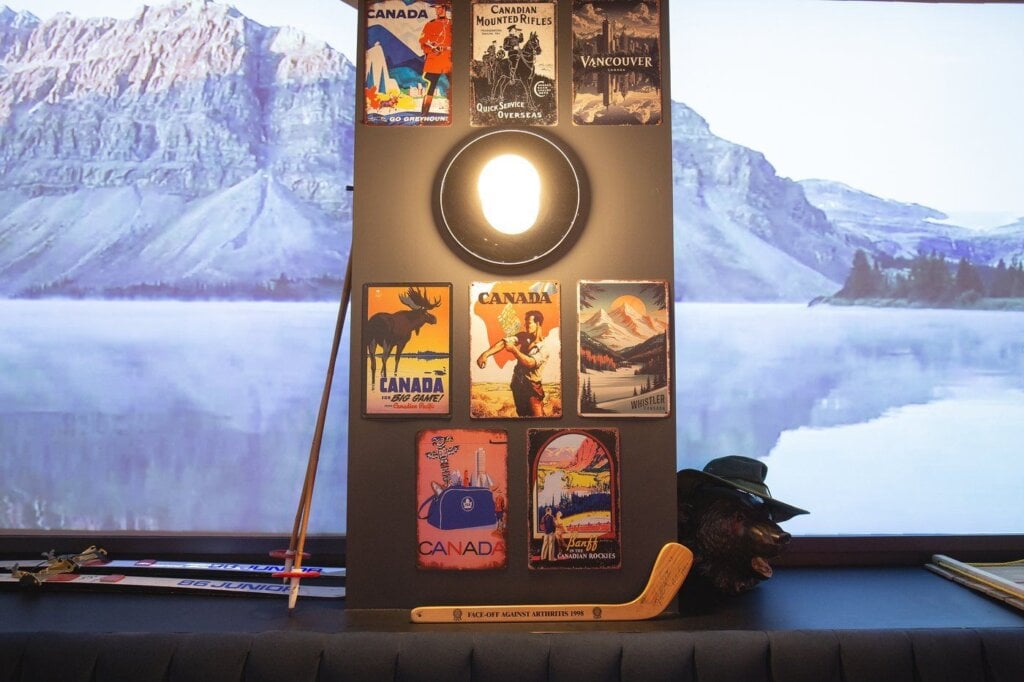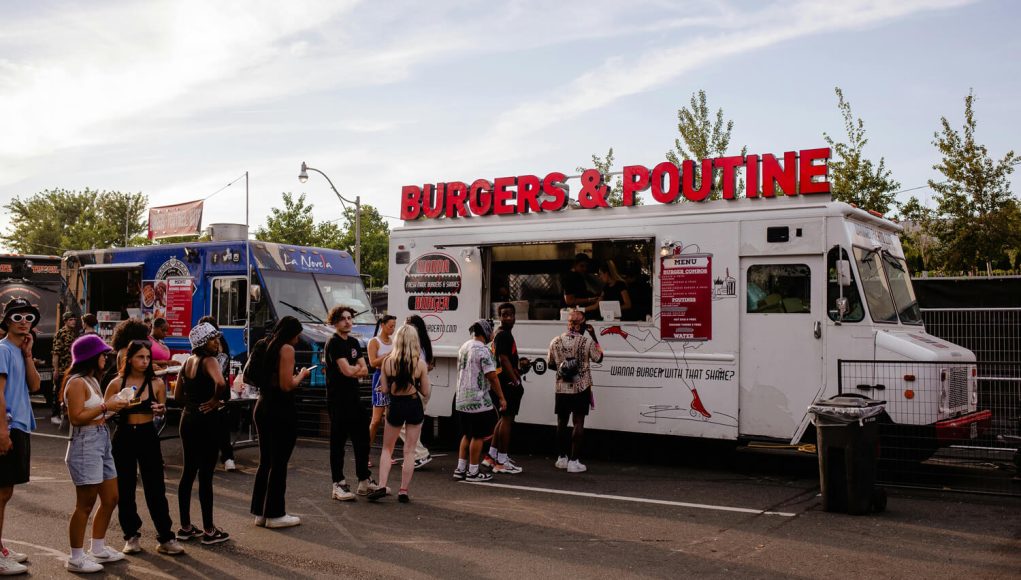Maple leaves and animatronic bears will set the mood. Customers will be able to order Montreal smoked meat, calamari from the Maritimes or Caesars topped with ketchup chips in mini paper boats. They can all be paid for by cash, card or the country’s other favourite currency, Canadian Tire money.
For entertainment, Blue Rodeo, Rush and Loverboy will be on heavy rotation and a “Hoser Olympics” will see customers face off in a series of challenges like the “loonie toss,” “hockey tape escape” and “sorry-not-sorry” Canadian apology competition.
“It’s going to be wild how much stuff there is,” said co-owner Jessica Langer Kapalka, who also plans to dress the bar manager in a nine-foot, inflatable grizzly bear costume and set up tents offering a campfire-like experience with s’mores.
Grizzly Bar’s in-your-face approach is one of the ways Canadian restaurants are responding to the tariff tensions that have engulfed North America and threatened to upend food supply chains and dining out budgets.


Canadian restaurants show Canadian fare
As U.S. President Donald Trump continues to antagonize his country’s closest ally with duties on everything from cars to kitchen cupboard staples, Canadian restaurants have swapped U.S. ingredients for domestic ones. Some have revamped menus, ditching the Philly cheesesteak and replacing Americanos with Canadianos, while others are holding back on U.S. expansion plans.
The varying approaches reflect the fact that every establishment has had to find its own way to balance its Canadian pride with the preferences of its customer base and the realities of pricing pressures, said Jo-Ann McArthur, president at Toronto advertising agency Nourish Food Marketing. “You don’t have to go all the way to changing your decor and changing your entire menu,” she said. “It’s about supporting your local producers where you can.”
Odd Burger pauses U.S franchise plans
Yet some, like James McInnes, are keen to take the issue even further. His vegan fast-food chain Odd Burger Corp. paused its plan to open 60 franchises in the U.S. just two weeks after announcing the expansion in March.
McInnes made the decision because he feared “escalating political tensions” had made the economics of the plan too much for his London, Ont.-based business to stomach. “Not only are the tariff percentages changing on a daily basis, but also what is getting tariffed is changing on a regular basis,” McInnes explained. “How do you formulate pricing for franchisees when you don’t know what many of the costs will be?”







